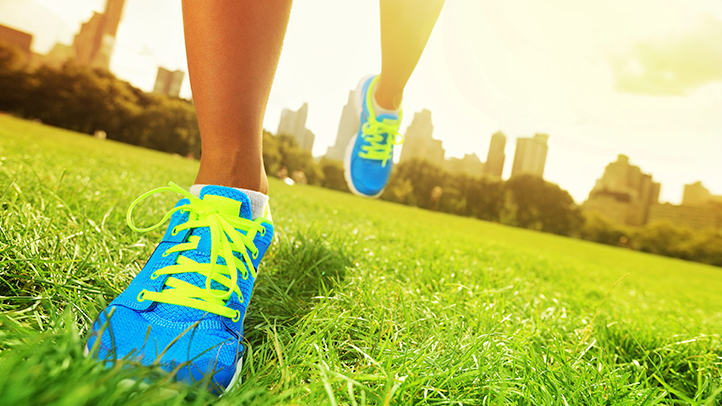"With summer in full swing, many of us want nothing more than to enjoy the great outdoors. But if you’re one of the 50 million Americans who live with seasonal allergies, you’re probably also wary of Mother Nature’s top allergen: pollen.
And with good reason. If you have seasonal allergies, your immune system considers the pollen you breathe in an invader. To protect you from this offender, it produces antibodies that travel to your cells and release chemicals that cause an allergic reaction, like sneezing, congestion, watery eyes, and coughing.
Here’s the good news for people with allergies: You don’t have to barricade yourself indoors all summer. “With the help of allergy shots and medications, the majority of people with allergies are able to control them and be active outside without suffering,” says Ronald H. Saff, MD, an allergist with the Allergy and Asthma Diagnostic Treatment Center in Tallahassee, Florida. He also recommends seven steps you can take to manage outdoor allergies this season:
1. Discover what you’re really allergic to. Before you declare grass to be your nemesis, do your homework. “A lot of people guess wrong as to what they’re allergic to,” says Dr. Saff. Your best bet is to see your allergist or immunologist and ask about having an allergy test. According to the American College of Allergy, Asthma & Immunology, this will probably be a skin-prick test (in which a diluted allergen is introduced by means of a puncture at the surface of the skin) or an intradermal test (in which a diluted allergen is injected just below the skin surface with a very thin needle). Your allergist will then observe your skin for about 15 minutes to determine whether your body has a reaction to the allergen.
2. Know the best (and worst) times to go outside. Pollen travels the most easily in hot, dry, windy weather, so these conditions can worsen your allergy symptoms. Seasonal allergies tend to act up less on rainy, cloudy, or windless days because pollen doesn’t blow around as much.
You can check the allergy forecast in your neighborhood each morning, or the American Academy of Allergy, Asthma & Immunology’s National Allergy Bureau map, but of course you won't always be able to abandon your daily activities when pollen levels are high. Saff says that most people with allergies who find the right doctor can get medications to help control their allergies so they can go outside anytime they want. Those who aren’t able to control their outdoor allergy symptoms should stick to indoor activities when possible — such as exercising inside instead of outdoors.
3. Take your medications on time. Most over-the-counter allergy medications start working pretty quickly and should be taken 30 minutes to one hour before going outside, Saff says. Others take a few days to a week to become fully effective against allergy symptoms. Talk to your doctor about which medications are right for you, and be sure to take them on time, as instructed.
4. Dress for outdoor allergies. Make hats and sunglasses your go-to accessories this season— they can help keep pollen out of your hair and eyes. If you’re outdoors cutting the grass or doing yard work, you may also want to wear a pollen mask to reduce your exposure to allergy triggers and help prevent an allergy attack.
5. Undress as soon as you get home. Take off your shoes when you step back inside so you don’t track pollen and mold through your home, and change your clothes as soon as possible. Also consider a quick shower to wash your hair and remove any pollen that may be trapped in it. Wash your clothes as well, but remember never to hang laundry outside to dry during allergy season so that pollen can't cling to it.
6. Anticipate allergens when traveling. Jetting off to a new destination this season? If it’s not a low-allergen locale like the beach, you may encounter new types of outdoor allergens. Pack medications in your carry-on so you’ll be prepared for different environments. If you plan on spending travel time in the car, remember to keep the windows up to avoid getting pollen inside.
7. Know what to do if an allergy attack occurs. Sometimes allergy attacks occur despite your best efforts. An attack may include repetitive sneezing, itchy eyes, and an itchy or congested nose and throat, says Saff — all of which can make you feel absolutely miserable. It’s a good idea to arm yourself with tissues, eyedrops, and even a bottle of water (if airborne allergens are causing you to cough). If you have asthma and suffer from outdoor allergies, carry your inhaler and any other medications your doctor prescribes. If you find yourself sneezing, coughing, or becoming congested, or your eyes are watering, try to stop whatever you’re doing and retreat indoors, says Saff, taking medication if necessary".
Fuente: www.everydayhealth.com
